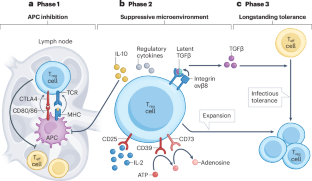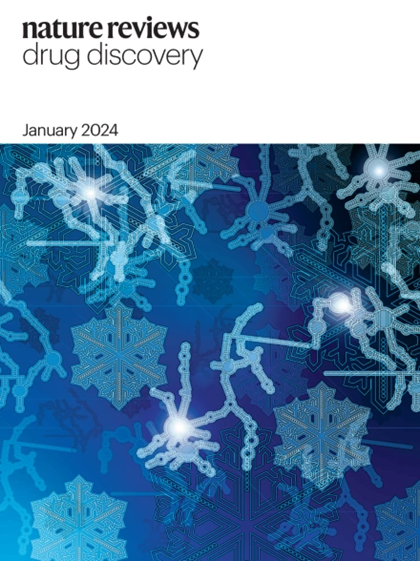Harnessing the biology of regulatory T cells to treat disease
IF 122.7
1区 医学
Q1 BIOTECHNOLOGY & APPLIED MICROBIOLOGY
引用次数: 0
Abstract
Regulatory T (Treg) cells are a suppressive subset of CD4+ T cells that maintain immune homeostasis and restrain inflammation. Three decades after their discovery, the promise of strategies to harness Treg cells for therapy has never been stronger. Multiple clinical trials seeking to enhance endogenous Treg cells or deliver them as a cell-based therapy have been performed and hint at signs of success, as well as to important limitations and unanswered questions. Strategies to deplete Treg cells in cancer are also in active clinical testing. Furthermore, multi-dimensional methods to interrogate the biology of Treg cells are leading to a refined understanding of Treg cell biology and new approaches to harness tissue-specific functions for therapy. A new generation of Treg cell clinical trials is now being fuelled by advances in nanomedicine and synthetic biology, seeking more precise ways to tailor Treg cell function. This Review will discuss recent advances in our understanding of human Treg cell biology, with a focus on mechanisms of action and strategies to assess outcomes of Treg cell-targeted therapies. It highlights results from recent clinical trials aiming to enhance or inhibit Treg cell activity in a variety of diseases, including allergy, transplantation, autoimmunity and cancer, and discusses ongoing strategies to refine these approaches. Regulatory T cells keep the immune system in check to maintain homeostasis and restrain inflammation. This Review discusses strategies to harness these cells therapeutically for autoimmunity, transplant tolerance or cancer, for example, by boosting their endogenous function, depleting them or administering them as engineered cell-based therapies.


利用调节性T细胞的生物学特性来治疗疾病
调节性 T(Treg)细胞是 CD4+ T 细胞的抑制性亚群,可维持免疫平衡并抑制炎症。在发现调节性 T 细胞三十年后的今天,利用调节性 T 细胞进行治疗的前景空前广阔。目前已经开展了多项临床试验,试图增强内源性 Treg 细胞或将其作为一种细胞疗法来使用,这些试验显示了成功的迹象,同时也揭示了一些重要的局限性和未解之谜。在癌症中消耗 Treg 细胞的策略也在积极的临床试验中。此外,研究 Treg 细胞生物学的多维方法也使人们对 Treg 细胞生物学和利用组织特异性功能进行治疗的新方法有了更深入的了解。目前,纳米医学和合成生物学的进步正在推动新一代 Treg 细胞临床试验,寻求更精确的方法来定制 Treg 细胞功能。本综述将讨论我们对人类 Treg 细胞生物学认识的最新进展,重点关注 Treg 细胞靶向疗法的作用机制和疗效评估策略。它重点介绍了近期旨在增强或抑制 Treg 细胞在过敏、移植、自身免疫和癌症等多种疾病中的活性的临床试验结果,并讨论了完善这些方法的现行策略。
本文章由计算机程序翻译,如有差异,请以英文原文为准。
求助全文
约1分钟内获得全文
求助全文
来源期刊

Nature Reviews. Drug Discovery
医学-生物工程与应用微生物
CiteScore
137.40
自引率
0.30%
发文量
227
期刊介绍:
Nature Reviews Drug Discovery is a monthly journal aimed at everyone working in the drug discovery and development arena.
Each issue includes:
Highest-quality reviews and perspectives covering a broad scope.
News stories investigating the hottest topics in drug discovery.
Timely summaries of key primary research papers.
Concise updates on the latest advances in areas such as new drug approvals, patent law, and emerging industry trends and strategies.
 求助内容:
求助内容: 应助结果提醒方式:
应助结果提醒方式:


